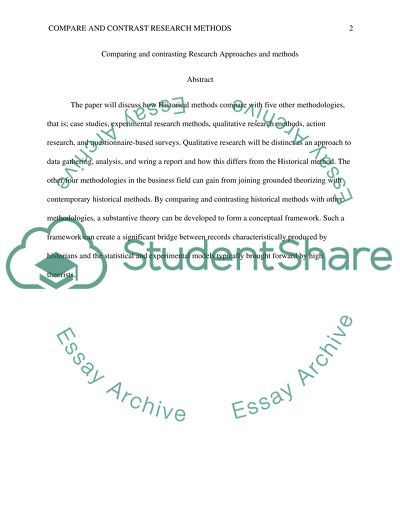Cite this document
(Research Approaches and Methods Term Paper Example | Topics and Well Written Essays - 2000 words, n.d.)
Research Approaches and Methods Term Paper Example | Topics and Well Written Essays - 2000 words. Retrieved from https://studentshare.org/science/1461873-compare-and-contrast-research-approaches-and
Research Approaches and Methods Term Paper Example | Topics and Well Written Essays - 2000 words. Retrieved from https://studentshare.org/science/1461873-compare-and-contrast-research-approaches-and
(Research Approaches and Methods Term Paper Example | Topics and Well Written Essays - 2000 Words)
Research Approaches and Methods Term Paper Example | Topics and Well Written Essays - 2000 Words. https://studentshare.org/science/1461873-compare-and-contrast-research-approaches-and.
Research Approaches and Methods Term Paper Example | Topics and Well Written Essays - 2000 Words. https://studentshare.org/science/1461873-compare-and-contrast-research-approaches-and.
“Research Approaches and Methods Term Paper Example | Topics and Well Written Essays - 2000 Words”, n.d. https://studentshare.org/science/1461873-compare-and-contrast-research-approaches-and.


